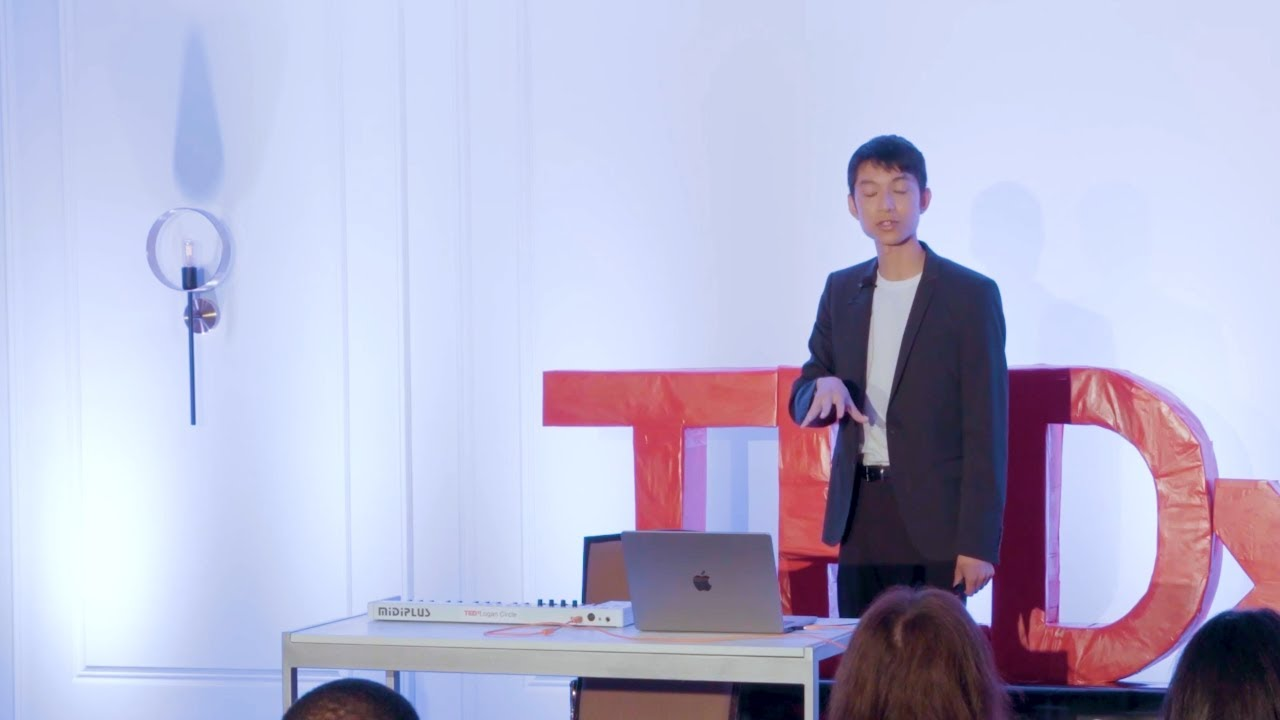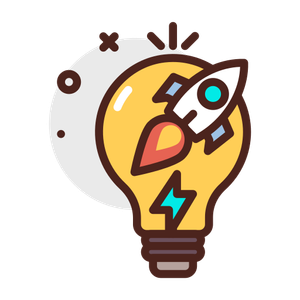The video explores the intersection between music, emotion, and data communication by sharing a personal journey of self-discovery and professional development. The speaker begins by comparing the monotony of traditional data presentations to a business meeting experience where he realized the need for a more engaging method, inspired by his background in music.
The speaker elaborates on his personal story, including how music initially served as a tool for expression and connection; however, an analytical approach to music led to a lack of emotional resonance. Through setbacks and shifts towards a career in technology focusing on data, he learned the importance of balancing emotion and logic to convey messages effectively. A crucial learning moment arrived when understanding dual processing theory in psychology, which helped in crafting more engaging and meaningful data presentations.
Main takeaways from the video:
Please remember to turn on the CC button to view the subtitles.
Key Vocabularies and Common Phrases:
1. drone on [droʊn ɒn] - (verb) - To talk at length in a monotonous tone. - Synonyms: (ramble, babble, prattle)
I remember sitting in a business meeting 04:00 p.m. on a Friday, watching an executive drone on about whatever that is.
2. bullying [ˈbʊliɪŋ] - (noun) - The act of intimidating or mistreating someone weaker or perceived as weaker. - Synonyms: (harassment, intimidation, victimization)
I was bullied in school.
3. epiphany [ɪˈpɪfəni] - (noun) - A moment of sudden revelation or insight. - Synonyms: (revelation, realization, insight)
I had an epiphany.
4. dual processing theory [ˈduːəl ˌprɑːsɛsɪŋ ˈθɪəri] - (noun) - A psychological theory stating that the brain uses two systems: a quick, intuitive one and a slower, analytical one. - Synonyms: (dual pathways, two-process theory)
The dual processing theory of mind, which states there are two modes of a quick intuitive mode based on emotions, pattern recognition, and a slow analytical mode based on logic processing data.
5. intuitive [ɪnˈtjuːɪtɪv] - (adjective) - Based on feelings rather than facts or proof. - Synonyms: (instinctive, spontaneous, natural)
The dual processing theory of mind, which states there are two modes of a quick intuitive mode based on emotions, pattern recognition, and a slow analytical mode based on logic processing data
6. context [ˈkɒntɛkst] - (noun) - The circumstances or conditions in which something exists or occurs. - Synonyms: (background, setting, framework)
By not just saying the number, but putting it in context?
7. burnout [ˈbɜːrnaʊt] - (noun) - A state of emotional, physical, and mental exhaustion caused by prolonged stress. - Synonyms: (fatigue, exhaustion, weariness)
But in one job that burned me out the most, where what I did was never good enough.
8. authentic [ɔːˈθɛntɪk] - (adjective) - Genuine and original, as opposed to false or imitation. - Synonyms: (genuine, real, original)
I'm a more authentic me a more strategic analyst.
9. analytical [ˌænəˈlɪtɪk(ə)l] - (adjective) - Relating to the detailed examination of the elements or structure of something. - Synonyms: (logical, systematic, methodical)
Though presented in this analytical, theoretical, scientific way, I had an epiphany.
10. composing [kəmˈpoʊzɪŋ] - (verb) - The process of creating original music or written work. - Synonyms: (crafting, creating, devising)
By composing it, I could express myself, and it was strangely scientific.
How Music Can Make Your Data Sing - Christopher Chin - TEDxLogan Circle
This is going to be the most boring start to a TEDx talk you've ever heard. Ready? The company financials in quarter three were $5 billion. In quarter two, it was $4 billion in quarter. I remember sitting in a business meeting 04:00 p.m. on a Friday, watching an executive drone on about whatever that is. I thought, did he not see it feels like this? No. I realized I saw data differently because my background is music. Just like notes are the building blocks of music, data is the building block of decisions. What I want to explore today is how can we communicate data in a more musical way.
As a kid, I didn't want to be a musician or an analyst. I wanted to be a scientist. I loved breaking things down and building step by step to ask my crush to prom. Instead of just asking her, I built a robot to ask. I programmed it so when she looked in its little eye sensors, it would raise a sign that said prom, question mark. She said, yes, but you can see how a kid like that is a bit different. I was bullied in school. People hurling nasty names, pulling my shorts down in the locker room, forcing me to do all the work and taking credit for it. I hid more and more of myself what I wanted, what I felt, because others didn't care. Then I found music. By composing it, I could express myself, and it was strangely scientific.
Consider twinkle, twinkle, little star. In classical music theory, there are two main a major formula which sounds happy, and a minor formula which sounds Sadeena. I could do all kinds of things, but those are the rules. And like a good scientist, I stuck with them. In college, I honed this craft and began to make music for short films. People liked it. I got in a film music program, and things were finally coming together. For the program's final project, I wanted to be exceptional. I had a big vision where music and spoken text would mix together. Theoretically great. But after the recording session, the guitarist came to me and said, Chris, high concept pieces are good sometimes. This isn't one of them.
I was crushed. One, because he was right. By approaching music analytically, theoretically, scientifically, it lost its emotion. But two, music was a raw part of myself. I was daring to share. To see it lacked value meant I lacked value, too. I left music. I went to tech, to the world. I knew of data and science, and I loved how it let me be. Let me hide behind computers and screens, get this data, do this task, make this report, and people liked it.
One day, though, I was in this unfortunate meeting where an executive kept droning on. I found it frustrating because this data was valuable to our company. Nobody could see it. Though presented in this analytical, theoretical, scientific way, I had an epiphany. This is the same mistake as my music. We need emotion. I sought research on this topic, and psychology had the answer. The dual processing theory of mind, which states there are two modes of a quick intuitive mode based on emotions, pattern recognition, and a slow analytical mode based on logic processing data.
As an analogy, if you just used slow analytical mode, you would pay attention to every data point in this room. My voice, your seat, this stage, your neighbor. You'd go insane. Instead, your brain has intuitive mode on all the time. Quickly processing, sending suggestions to analytical mode. When things feel different, like I'm going to play twinkle, twinkle, little star, I want you to notice what catches your attention. Let's do that again. Right there. intuitive mode goes. That felt different. That wasn't major or minor. It was something else. Hey, analytical mode, pay more attention. I'm going to keep going. I want you to notice what catches your attention again.
Did you feel that by using both modes, you're continuously emotionally engaged? I carried this to data. I started my own business teaching data communication, and one of my clients had slides like this. I said, right now, the analytical mode in my brain is laboriously processing every number. Everything feels black and white the same. What if I add emotional color? What if I said of these numbers, this is concerning because last quarter it had a higher value? Or what if I said, this number is surprising? We thought process x was doing well, but looks like we should use y instead of. Did that catch your attention by not just saying the number, but putting it in context? Happy context. Sad context concerning context, surprising context. What the data means and what I should do about it. The data is more intuitive.
When my client presented data this way, he said the story was finally clear. He closed the deal he wanted because both the intuitive and analytical modes were respected. This realization was not only pivotal for my career, it was pivotal for me. Because I hid so much of myself. What I wanted, what I felt. I ignored my emotions. Others took advantage of me. I didn't act. I lost a really close friend and didn't cope.
But in one job that burned me out the most, where what I did was never good enough, I couldn't ignore how I felt. I decided to speak up for myself. I built my business, created a community. I married the girl I took to prom. After ten years of leaving music behind, I'm playing it again. By using intuition and analysis, I'm a more authentic me a more strategic analyst. A composer who uses head and heart.
Even if you don't work with music and data, I invite you to consider the way you see the world. As a leader, do you make decisions with your gut or decisions based on evidence? As a doctor, do you tell patients their numbers or what those numbers mean? You need both. We can all benefit from seeing the world in an intuitive and analytical way. Thank you.
Innovation, Leadership, Education, Data Communication, Emotional Intelligence, Personal Growth, Tedx Talks


